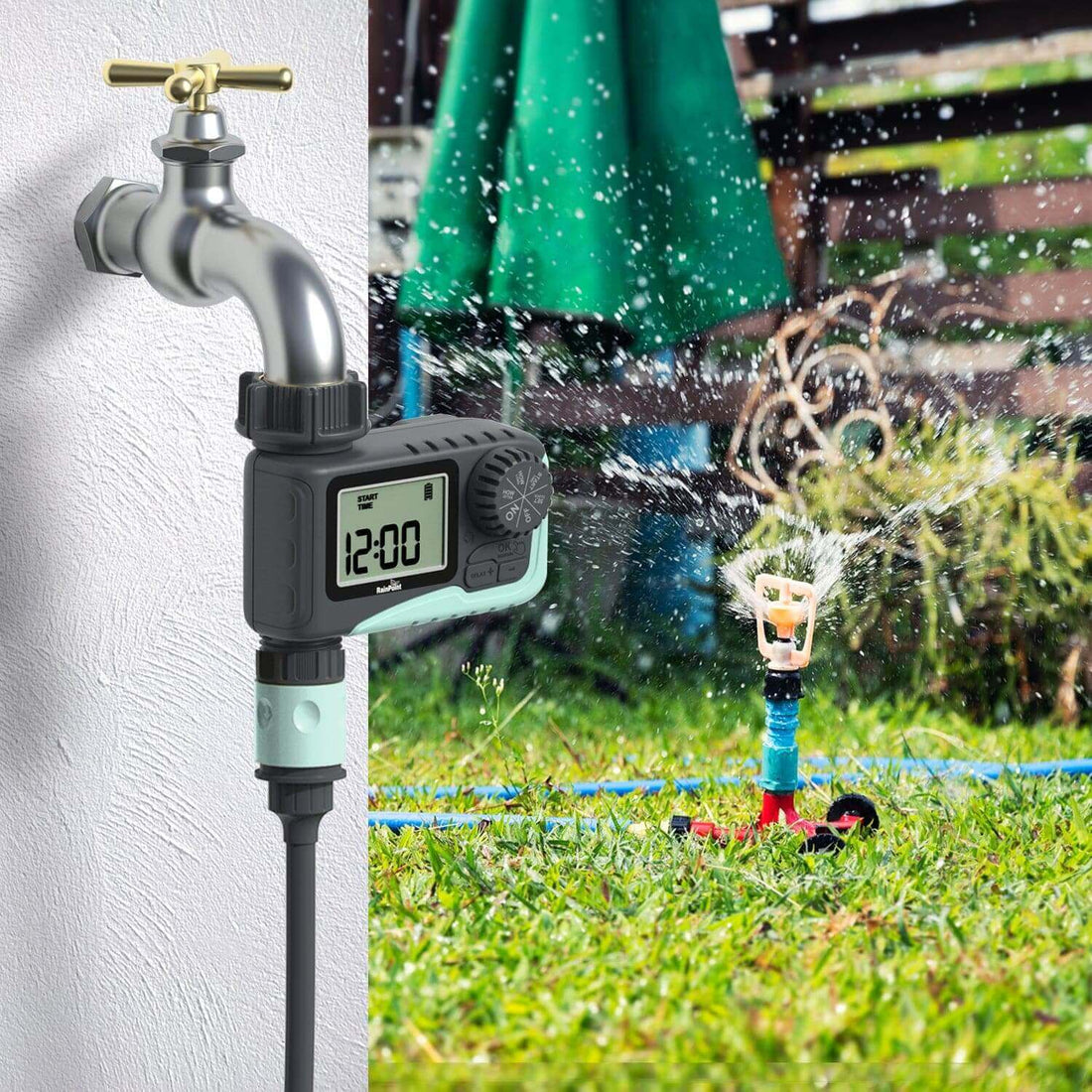
A healthy, lush garden requires consistent watering, and a sprinkler timer is an invaluable tool to achieve just that. This device automates the watering process, ensuring your plants receive the right amount of water at the right time, even when you're not around. In this guide, we’ll explore the benefits of sprinkler timers, the different types available, and how to choose the best one for your needs.
Why Use a Sprinkler Timer?
Sprinkler timers offer several advantages for gardeners. Firstly, they help conserve water by providing precise and efficient watering schedules. This not only reduces water wastage but also lowers your water bill. Secondly, a timer ensures your garden is watered regularly, which is crucial for maintaining plant health and promoting growth. Additionally, using a timer frees up your time, allowing you to focus on other important tasks or simply relax.
Types of Sprinkler Timers
- Mechanical Timers
Mechanical timers are the most basic type of sprinkler timer. They operate with a simple dial and are usually set by turning a knob to the desired watering duration and frequency. These timers are cost-effective and easy to use but may lack the precision and features of more advanced models.
- Digital Timers
Digital timers offer more flexibility and precision compared to mechanical timers. They come with a digital display and programmable settings that allow you to set multiple watering schedules. Many digital timers also include features such as rain delay, which postpones watering in case of rain, and seasonal adjustments to optimize watering based on changing weather conditions.
- Smart Timers
Smart timers represent the latest advancement in sprinkler timer technology. These timers connect to your home’s Wi-Fi network and can be controlled remotely via a smartphone app. Smart timers often integrate with weather data to adjust watering schedules based on real-time conditions. This not only enhances water efficiency but also provides convenience, as you can manage your garden’s watering needs from anywhere.
- Hydro-Zone Timers
Hydro-zone timers are designed for more complex irrigation systems, such as those with multiple zones. They allow you to program different watering schedules for each zone, ensuring that each part of your garden receives the appropriate amount of water. These timers are ideal for larger gardens or landscapes with varying water requirements.
How to Choose the Right Sprinkler Timer
When selecting a sprinkler timer, consider the following factors:
- Garden Size and Complexity
Assess the size and layout of your garden. For small to medium-sized gardens, a basic mechanical or digital timer may suffice. Larger gardens or those with multiple zones may benefit from a hydro-zone or smart timer.
- Ease of Use
Choose a timer that suits your comfort level. If you prefer simplicity, a mechanical timer might be the best option. For more control and advanced features, a digital or smart timer would be more appropriate.
- Budget
Sprinkler timers come in a range of prices. Mechanical timers are the most affordable, while smart timers tend to be more expensive due to their advanced features. Consider your budget and the features that are most important to you.
- Additional Features
Evaluate additional features that may be beneficial. Rain delay functions, seasonal adjustments, and remote control capabilities can enhance the functionality and convenience of your timer.
Conclusion
A sprinkler timer is a valuable investment for any gardener, providing convenience, efficiency, and optimal watering for your plants. By understanding the different types of timers and considering your garden’s needs, you can select the perfect timer to keep your garden thriving. Whether you opt for a basic mechanical timer or a sophisticated smart model, the right sprinkler timer will help ensure your garden remains healthy and beautiful throughout the year.